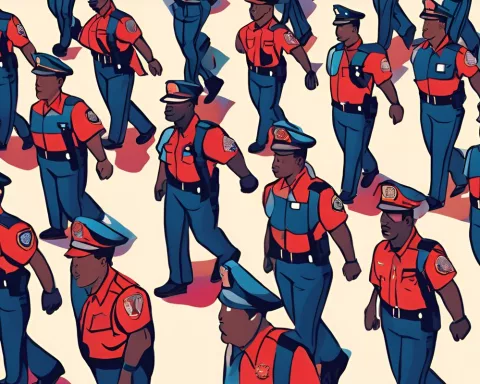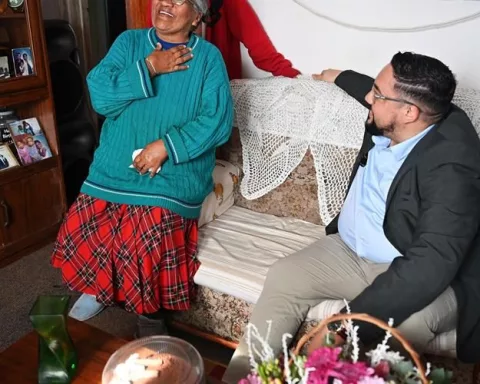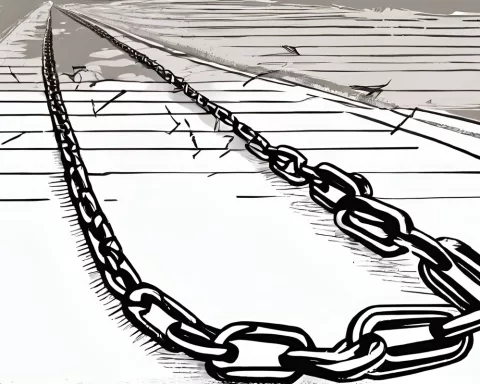Cape Town Mayor Geordin Hill-Lewis has written to Finance Minister Enoch Godongwana, urging him to maintain municipal grant funding, specifically housing conditional grants, in the upcoming mid-term budget speech. The mayor disagrees with the proposed R100 million decrease in these grants and proposes that cuts should be made in non-essential government departments and expenditures. He emphasizes the need to prioritize spending that directly benefits the poor and encourages the Minister to reconsider the proposed cuts. The mayor also calls for increased Equitable Share for the city and social rental housing subsidies.
What is Cape Town Mayor’s appeal to Finance Minister regarding housing grants?
Cape Town Mayor Geordin Hill-Lewis has urged Finance Minister Enoch Godongwana to maintain municipal grant funding in the upcoming mid-term budget speech, stressing the importance of preserving housing conditional grants for the city. Hill-Lewis vehemently disagrees with the suggested R100 million decrease in these grants, proposing that the cuts should be made in non-essential government departments and expenditures.
Mayor’s Appeal to Finance Minister
Cape Town Mayor Geordin Hill-Lewis has urged Finance Minister Enoch Godongwana to maintain municipal grant funding in the upcoming mid-term budget speech, stressing the importance of preserving housing conditional grants for the city. Hill-Lewis vehemently disagrees with the suggested R100 million decrease in these grants, proposing that the cuts should be made in non-essential government departments and expenditures, such as the R3.5 billion allocated to Ministerial VIP security. The adverse effects of these proposed cuts will disproportionately impact the poor, as local governments and provinces will likely have to compensate for the national budget cuts.
Cape Town’s Urban Settlements Development Grant and Informal Settlements Upgrading Grant are both under consideration for significant reductions, amounting to over R100 million for the 2023/24 fiscal year alone. Hill-Lewis views these cuts as “anti-poor” since they will directly affect crucial housing and informal settlement budgets allocated for the city’s most vulnerable communities. It is essential to safeguard expenditures aimed at improving the lives of the disadvantaged, enhancing services in informal settlements, providing housing, and building critical infrastructure.
In his letter to the Finance Minister, Hill-Lewis highlights the need to prioritize spending that directly benefits the poor and encourages the Minister to reconsider the proposed cuts. He acknowledges the financial constraints facing the mid-term budget but maintains that the current plan is misguided. As South Africa’s Finance Minister, Godongwana has the chance to demonstrate his commitment to fostering a progressive, pro-poor, and pro-growth nation, similar to Cape Town’s vision.
Calls for Increased Equitable Share and Social Rental Housing Subsidies
In addition to his concerns regarding housing grant cuts, Mayor Hill-Lewis also advocates for a higher Equitable Share for the city, considering recent census data that shows Cape Town’s rapid population growth. With the city’s population quickly approaching Johannesburg’s and surpassing five million residents, its Equitable Share should be increasing rather than decreasing.
Regarding social rental housing subsidies, Hill-Lewis calls for their inclusion in the national medium-term budget. The National Social Housing Regulatory Authority has recommended raising these subsidies, as the current regime has neither kept up with inflation nor adequately supported the social housing sector.
Mayor’s Priority Programme and Budget Utilization
Mayor Hill-Lewis has made accelerated land release for affordable housing a key focus in Cape Town, recognizing the essential role of private sector delivery supported by an enabling state in the future of housing. In the first year of this Priority Programme, over 2,200 social housing units across seven land parcels have reached various approval and land release milestones, with an additional 6,500 social housing units in the pipeline across 50 land parcels within the city.
In the previous fiscal year, Cape Town’s Human Settlements Directorate utilized 99.3% of its R880 million capital budget, concentrating on enhancing living conditions for vulnerable households and providing suitable accommodation. Over the next three years, a capital budget of R2.5 billion has been allocated for human settlements projects.
Cape Town’s Mayoral Committee Member for Human Settlements, Councillor Carl Pophaim, emphasizes that the city effectively spends the assigned budgets. However, the extensive national government grant budget cuts will have significant consequences on human settlements delivery in the city and across the country. Councillor Pophaim joins Mayor Hill-Lewis in urging no reductions to the conditional grants intended to support the most vulnerable.
What does the Cape Town Mayor propose should be cut in order to preserve housing conditional grants?
The Cape Town Mayor proposes that cuts should be made in non-essential government departments and expenditures, such as the R3.5 billion allocated to Ministerial VIP security, instead of decreasing housing conditional grants.
How will the proposed cuts to housing grants affect the poor in Cape Town?
The proposed cuts to housing grants will have adverse effects on the poor in Cape Town as local governments and provinces will likely have to compensate for the national budget cuts, and the cuts will directly affect crucial housing and informal settlement budgets allocated for the city’s most vulnerable communities.
What grants are under consideration for significant reductions in Cape Town?
Cape Town’s Urban Settlements Development Grant and Informal Settlements Upgrading Grant are both under consideration for significant reductions, amounting to over R100 million for the 2023/24 fiscal year alone.
Why does Cape Town need an increased Equitable Share?
Cape Town needs an increased Equitable Share because its population is rapidly growing, approaching Johannesburg’s and surpassing five million residents.
What subsidies does the Cape Town Mayor call for inclusion in the national medium-term budget?
The Cape Town Mayor calls for social rental housing subsidies to be included in the national medium-term budget, as the current regime has neither kept up with inflation nor adequately supported the social housing sector.
What is Mayor Hill-Lewis’ Priority Programme for Cape Town?
Mayor Hill-Lewis’ Priority Programme for Cape Town is accelerated land release for affordable housing, recognizing the essential role of private sector delivery supported by an enabling state in the future of housing.
How has Cape Town’s Human Settlements Directorate utilized its capital budget?
In the previous fiscal year, Cape Town’s Human Settlements Directorate utilized 99.3% of its R880 million capital budget, concentrating on enhancing living conditions for vulnerable households and providing suitable accommodation.
What is the capital budget allocated for human settlements projects over the next three years in Cape Town?
Over the next three years, a capital budget of R2.5 billion has been allocated for human settlements projects in Cape Town.








